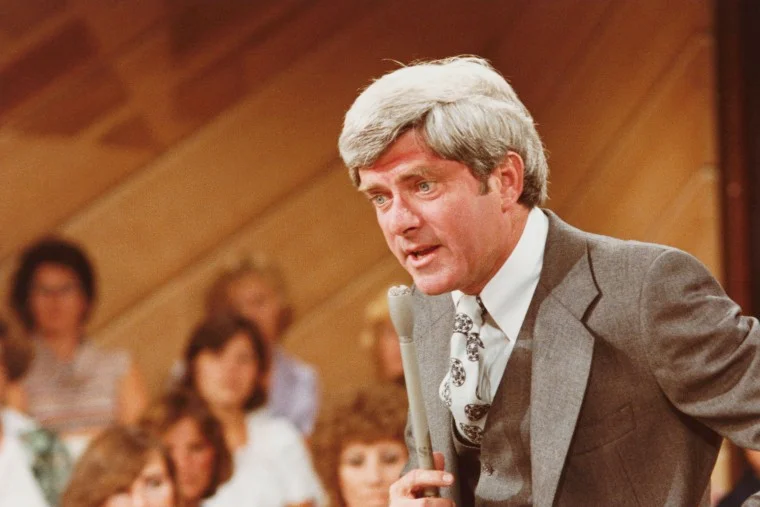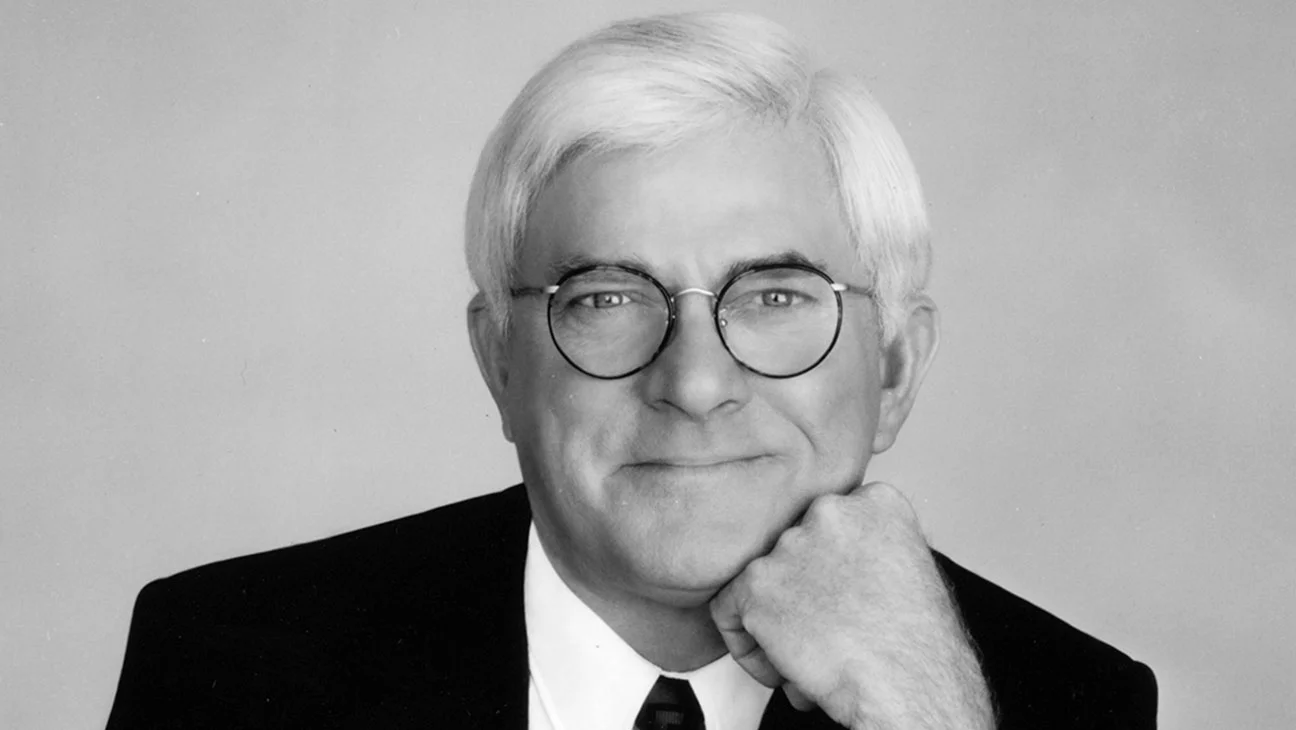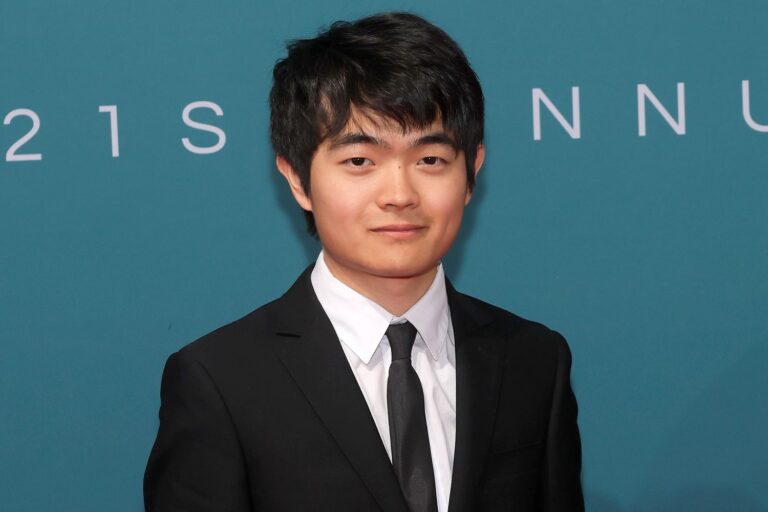On August 18, 2024, the world lost a television legend, Phil Donahue, who passed away at the age of 88. Often hailed as the “King of Daytime TV,” Donahue’s groundbreaking approach to talk shows forever changed the landscape of daytime television, setting the stage for future hosts.
Table of Contents

Also Read: Gena Rowlands, star of ‘The Notebook,’ dead at 94
From Cleveland to National Stardom: Donahue’s Early Years
Phil Donahue was born on December 21, 1935, in Cleveland, Ohio. He began his media career in the late 1950s as a production assistant at KYW radio and TV. Through perseverance and talent, he worked his way up, eventually hosting a radio program called “Conversation Piece.” This early experience laid the groundwork for what would become his pioneering career in television.
The Birth of a Groundbreaking Show
In 1967, Donahue launched “The Phil Donahue Show” in Dayton, Ohio. Unlike other talk shows of the time, which typically featured a variety of topics in a single episode, Donahue’s show focused on one issue per episode. This unique approach allowed for in-depth discussions on controversial subjects such as feminism, race relations, and religion.
Donahue also revolutionized the talk show format by involving the studio audience in interviews. Audience members were encouraged to ask questions directly to the guests, creating an interactive and dynamic atmosphere that engaged viewers in a way that had never been done before. This format became a hallmark of daytime talk shows and remains influential to this day.
National Success and Cultural Impact
By 1970, “The Phil Donahue Show” had gained national syndication, bringing Donahue’s signature style of issue-driven conversation to a wider audience. The show became a ratings success and earned Donahue widespread recognition, including 20 Emmy Awards—10 for the show and 10 for his role as an outstanding talk show host.
Donahue’s ability to connect with viewers and address pressing social issues made him a beloved figure in American households. He hosted a wide range of guests, from celebrities like Elton John and Robin Williams to global icons like Nelson Mandela, who granted Donahue an exclusive interview after his release from prison. These moments underscored Donahue’s commitment to meaningful and impactful television.
Personal Life and Philanthropy
Beyond his television career, Phil Donahue was deeply committed to his family and philanthropy. He was married to actress Marlo Thomas for 44 years, and their enduring relationship was a testament to their strong bond. Family was central to Donahue’s life, and he often spoke about the importance of family values on his show.
Donahue was also dedicated to giving back. He supported numerous charitable organizations, including St. Jude Children’s Research Hospital and the Phil Donahue/Notre Dame Scholarship Fund, reflecting his commitment to making a positive difference in the world.
Final Years and Lasting Legacy
In his later years, Donahue faced health challenges, battling a long illness. Despite this, he remained a revered figure in the media industry. On August 18, 2024, Donahue passed away peacefully at home, surrounded by his family, including his wife Marlo Thomas, his sister, his children, grandchildren, and his beloved golden retriever, Charlie.
Following his passing, tributes poured in from fans, colleagues, and celebrities who admired Donahue’s pioneering work. Oprah Winfrey, who often credited Donahue as a significant influence on her career, described him as a trailblazer who brought intelligent and thought-provoking content to daytime TV. She once remarked, “If there had been no Phil Donahue show, there would be no ‘Oprah Winfrey’ show.”
A Legacy That Endures
Phil Donahue’s impact on television and society is undeniable. His innovative approach to daytime TV and his commitment to addressing important social issues have left a lasting mark on the industry. As we remember Phil Donahue, we celebrate a life that not only transformed the landscape of television but also inspired countless others to use their platforms for positive change. His legacy will continue to influence future generations of television hosts and viewers alike, ensuring that his contributions to media and society are remembered for years to come.




